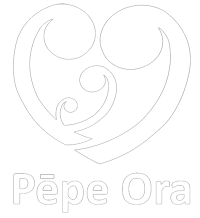Power To Protect - Never Shake a Baby
Crying is one of the only forms of communication your pēpi has. Sometimes pēpi cry because something is wrong and sometimes pēpi cry because they want your attention and love. Often you won’t be able to find a reason why your pēpi is crying. This can be stressful, particularly if your pēpi is crying for a long period of time. Shaken baby syndrome usually happens when a parent or cargiver shakes pēpi because they are frustrated with them.
Shaking a pēpi can lead to permanent brain damage, paralysis, blindness, deafness, seizuers, broken bones, developmental delays and death.
You have the power to protect. Have a plan in place for when pēpi won’t stop crying. If you’re feeling frustrated, put pēpi in a safe space and take a break. Come back when you are ready to comfort your pēpi.
If you are worried your pēpi is unwell, contact your midwife, GP or Tamariki Ora Well Child provider.
Never leave your pēpi alone with someone you think might lose control. If you think you might lose control, don’t pick up your pēpi. Talk to a trusted relative or friend and don’t be embarrassed. It’s healthy to know when you’ve reached your limit.
Crying is one of the only forms of communication your pēpi has. Sometimes pēpi cry because something is wrong and sometimes pēpi cry because they want your attention and love. Often you won’t be able to find a reason why your pēpi is crying. This can be stressful, particularly if your pēpi is crying for a long period of time. Shaken baby syndrome usually happens when a parent or cargiver shakes pēpi because they are frustrated with them.
Shaking a pēpi can lead to permanent brain damage, paralysis, blindness, deafness, seizuers, broken bones, developmental delays and death.
You have the power to protect. Have a plan in place for when pēpi won’t stop crying. If you’re feeling frustrated, put pēpi in a safe space and take a break. Come back when you are ready to comfort your pēpi.
If you are worried your pēpi is unwell, contact your midwife, GP or Tamariki Ora Well Child provider.
Never leave your pēpi alone with someone you think might lose control. If you think you might lose control, don’t pick up your pēpi. Talk to a trusted relative or friend and don’t be embarrassed. It’s healthy to know when you’ve reached your limit.
Crying is one of the only forms of communication your pēpi has. Sometimes pēpi cry because something is wrong and sometimes pēpi cry because they want your attention and love. Often you won’t be able to find a reason why your pēpi is crying. This can be stressful, particularly if your pēpi is crying for a long period of time. Shaken baby syndrome usually happens when a parent or cargiver shakes pēpi because they are frustrated with them.
Shaking a pēpi can lead to permanent brain damage, paralysis, blindness, deafness, seizuers, broken bones, developmental delays and death.
You have the power to protect. Have a plan in place for when pēpi won’t stop crying. If you’re feeling frustrated, put pēpi in a safe space and take a break. Come back when you are ready to comfort your pēpi.
If you are worried your pēpi is unwell, contact your midwife, GP or Tamariki Ora Well Child provider.
Never leave your pēpi alone with someone you think might lose control. If you think you might lose control, don’t pick up your pēpi. Talk to a trusted relative or friend and don’t be embarrassed. It’s healthy to know when you’ve reached your limit.
